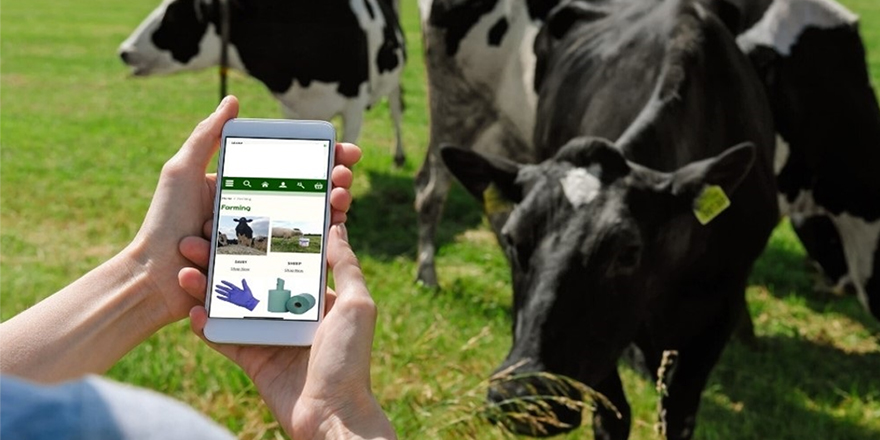
Executive Summary
The rise of Veganism, and uptake of plant sourced protein in diets is seemingly under the spotlight. The valuable attributes and characteristics of protein has been recognised and sources are up for debate. Traditionally in the western world, the consumption of animal sourced protein such as meat, dairy eggs, fish have sustained and fuelled generations. However, the popularity and rise in diets centred around plant or alternative protein has become circulated. It is hard to quantify the gravity of this message and subsequent impact on animal protein production however it is not to be ignored.
The purpose of this research was to explore the rise in veganism and the factors which influence a shift in perception and behaviour when it comes to consuming protein sources.
Through a study of literature, the role of protein in our diets has been explored as well as production and consumption trends in New Zealand and globally. The relationship with protein sources and the human behavioural aspect towards varying food messages was woven into the discussion. Unstructured interviews were conducted amongst animal and plant protein producers as well as industry partners and consumers. A personal 21-day vegan trial was also conducted with observations of thought, emotions and social attitudes recorded.
The key findings centred around three influencing factors which underpin why people change their diet from animal protein sources to plant or alternative. These are: Animal Ethics, Health and the environment. Each factor is explored with emotional response knitted into the discussion. The disparity in gender was also touched on as well as the influence of information channels.
Compassion for and concern regarding the farming and rearing of animals has been a factor behind the movement towards vegetarianism for years. The application of anthropomorphism which is the attribution of human traits, emotions or intentions towards animals induces feelings of guilt around animal product consumption. Guilt is self-conscious whereas compassion is felt as an expression towards another being. The combination can lead to people eliminating animal protein sources from their diet to avoid and disassociate from these feelings. Women tend to alter their diet based on compassionate grounds more so than men. With consideration of emotions stemming from animal protein consumption, it is necessary for humanity towards animals throughout the supply chain to be shared.
Another factor is an invisible belief system supporting choice to consume animals. The rise of plant-based diets is challenging ideology which explains defensive attitudes towards plant-based eaters. The vegan trial conducted supports theories that socially, people find it confronting when others choose to deviate from consuming animal protein.
Climate change is denoted as the defining issue of our time. Science and media imply animal agriculture has a negative effect on environment and is not sustainable. Overwhelming insignificance in the face of this problem leads to utilising food as a mechanism of control alleviating guilt and stress associated with degradation of natural environments. Disconnection with farming and food production allows room for people to transposition global environmental issues arising from animal protein production to New Zealand pastoral farming.
Health is where people are receiving mixed messages and where the channel of information becomes so important. The medical community have linked red meat to non-communicable diseases. The accuracy of findings in this space are questionable due to lifestyle factors and meat quality, however the message is enough to tarnish red meat protein sources. In contrast, plant and alternative protein are perceived as natural and healthy which is misleading based on various additives and intensive manufacturing processes.
Recommendations have arisen in the form of further questions and consideration for the animal protein industry, its producers and marketers.
Focus on the Three Pillars
A focus on eliminating concerns or stress points regarding food production such as impact to environment and animals will lead to positive eating experiences. Industry, marketers and food producers need to acknowledge, understand and address the factors behind a shift to plant based diets. An option could be to partner with plant-based producers or have plant-based product offerings to extend branding and increase consumer choice. All food producers and marketers need to ask the question: How does what and how we are eat make us feel? The psychological affect and relationship people have with food has a huge bearing on health and wellbeing.
Extend Dietary Guidelines
Existing diet guidelines are centred around physical health however an extension to address stress associated with diet labels/terminology and restrictive eating would be beneficial to consumers. Eliminating mixed messages from the health sector and food producers would reduce confusion. Through identifying and targeting stress factors, industry can enhance a positive relationship with food, which is imperative to health.
It is important to acknowledge that this research only brushes the surface of several facets relating to factors driving dietary change away from animal protein consumption. People are guided by their emotions and there is a gender differentiation response to food messaging




